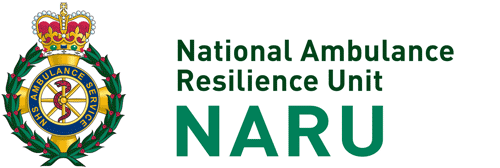The Government is to substantially increase its efforts to counter the terror threat from ISIL in the Government’s five year defence and security review to be unveiled next week. Measures will include:
- 1,900 extra security and intelligence staff
- At least a doubling of funding for aviation security around the world
- Additional aviation security officers to assess security at overseas airports
New funding will be invested in the security and intelligence agencies to provide for an additional 1,900 officers – an increase of 15% – at MI5, MI6 and GCHQ to respond to the increasing international terrorist threat, more cyber-attacks and other global risks.
In the wake of the increasing number of Islamist terror plots against Britain and the attacks in Belgium, France, Tunisia and elsewhere, the Prime Minister has decided to boost resources.
The Government is also planning a step change in its approach to aviation security following the Russian Metrojet disaster in Egypt a fortnight ago, which we believe was brought down by a bomb and that there is a significant possibility that ISIL were behind it.
The Prime Minister has ordered a rapid review of security at a number of airports around the world in the wake of the Sinai disaster with aviation specialists expected to conduct assessments over the next two months at locations in the Middle East and North Africa in particular.
Additional security measures were put in place by the UK and US at a number of potentially vulnerable airports over the past year, and these will now be reviewed to check whether they go far enough. And tomorrow, the National Security Council will discuss the Government’s policy on aviation security.
Ministers are expected to endorse a proposal, already backed by the Prime Minister, to more than double Government spending on aviation security over this Parliament.
The new funding would provide for:
- Additional aviation security experts to provide regular assessments of security at airports around the world and with the capacity to ‘surge’ as necessary in response to an incident such as the Metrojet crash.
- More advice, training and equipment for other countries to increase security at airports in vulnerable countries.
- Increased research into screening technology and to detect new threats
Ahead of publication of the Strategic Security and Defence Review, the Prime Minister said:
“Economic security goes hand-in-hand with national security. Since 2010 we have taken the tough decisions necessary to restore our economic strength and we now have one of the fastest growing developed economies.
That means we can now invest more in our national security and I am determined to prioritise the resources we need to combat the terrorist threat because protecting the British people is my number one duty as Prime Minister.
Our intelligence agencies work round the clock behind the scenes and as the threat has grown so they too have risen to the challenge. Much of what they do cannot be seen by us or talked about but their courageous and determined efforts allow us to go about our daily life.
This is a generational struggle that demands we provide more manpower to combat those who would destroy us and our values.
We will also step up our efforts on aviation security, helping countries around the world to put in place the tightest security measures possible so that we can continue to enjoy places like Egypt and Tunisia and continue with our way of life we hold so dear.”
The airport security assessments are likely to focus on the nature and scale of the threat and the measures in place to reduce vulnerabilities, for example passenger screening; physical security at the airport and hold baggage and freight screening. They will also prioritise airports with high numbers of British citizens travelling to and from them.
The Prime Minister is expected to talk about aviation security with other leaders at the G20 in Turkey today, including in a bilateral with President Putin. This will follow on from discussions about terrorism at the leaders’ working dinner on Sunday.
And this evening in London, the Prime Minister is expected to address the security threat facing the United Kingdom in his annual speech to the Lord Mayor’s Banquet where he is expected to talk more about the choices that the Government will make in the Strategic Security and Defence Review to ensure that money and resources are focused on the threats we face today.
Additional information
- The intelligence agencies (MI6, MI5, and GCHQ) currently have a staff of around 12,700.
- Current spending on aviation security is approximately £9 million a year.
- There are currently 20 Government Aviation Security Liaison Officers of which 8 are based overseas.
- The Government already works through the International Civil Aviation Organisation (ICAO) and the EU to ensure robust aviation security standards and recently secured agreement to:
- A new requirement for all EU airports to deploy explosive detention capability for passenger screening.
- New standards on the assessment of security arrangements for cargo flown into the EU.
